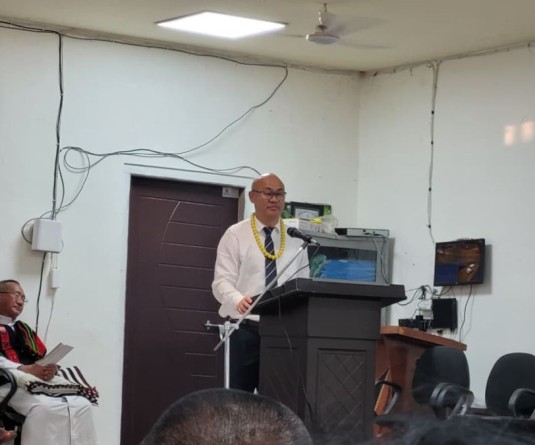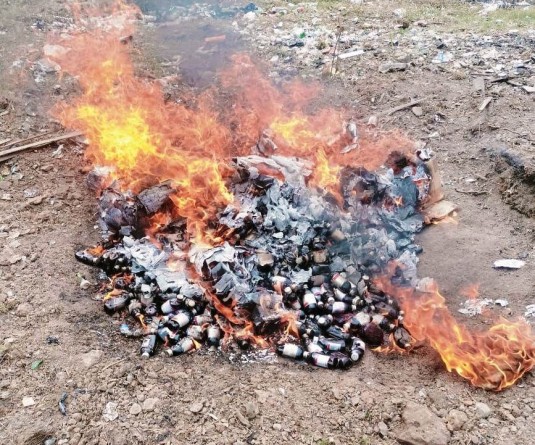
Dimapur, October 30 (MExN): Motor repair shops and garages in Dimapur are not famous from being environment-friendly, much less from being a contributor to good health. In fact, unlike in advanced countries, health and pollution safeguards are a total unheard-of in this side of the world, as a communiqué to Dimapur’s garages and work-shops from the Dimapur Municipal Council (DMC), implied.
What dangers do garages and work-shops pose to citizens and environment?
Waste produced by motor workshops that are potentially harmful to humans or the environment include unused paint, used degreasing or cleaning solvents, batteries, used oil and oil-contaminated materials, oil separator wastes among others. In general, vehicle repair workshops produce the following chemical wastes: spent lubricating oil, wiping cloths or cleaning rags stained with lubricating oil, and sand, waste refrigerants, organic solvents and their containers, waste paints and their containers, used oil filters with lubricating oil residues, waste batteries, engine coolants, brake linings with asbestos and one and on.
But if the Dimapur Municipal Council (DMC) and Nagaland Pollution Control Board’s (NPCB) regulations and suggestions are adhered to, the town’s grease-and-oil reputation may be a little shined. The DMC and the NPCB have decided to put up coordinated effort to effectively create awareness and educate the people of Dimapur to prevent or minimize pollution and protect the environment, enforcing environmental protection guidelines.
Penalty for polluting garages
The DMC said in its circular that motor vehicle repair shops can prevent or minimize pollution by storing, handling, recycling or disposing off the workshop wastes safely and legally. None of the workshops in Dimapur practically follow even the basic health and safety measures and thus contaminating air, soil and water with hazardous wastes produced in the workshops. Any motor vehicle repair workshops which does not comply with the guidelines of the local authority or pollution control board is an offence and is liable to be penalized even up to the extend of closing down of the business.
The DMC and the board reminded the garages and work-shops that pollution and its hazards are a very real and serious situation that is confronting every nation across the globe and is climbing even higher in every government’s political and social agenda. In fact, the Nagas’ environment and society is also a part of the global society responsible for causing all kinds of pollution which, today, are threatening the environment, health and lives worldwide stated the DMC’s communiqué.
Pollution approval required
The DMC also said any workshop within the state of Nagaland should obtain motor workshop guidelines from Nagaland Pollution Control Board and ensure that no adverse impact on air, soil and water including groundwater takes place. The guidelines also state that spent oil generated from diesel generators should be sold only to registered recycler or dispose in secured landfill.
“The DMC and NPCB are ready to assist the workshops to follow environmentally sound management practices by taking necessary steps to protect health and environment against adverse effects. And, for which workshops may approach the concerned offices,” the DMC said. All workshops are appealed to, to co-operate with the concerned agencies by coming forward and “do your bit to protect the environment.”






